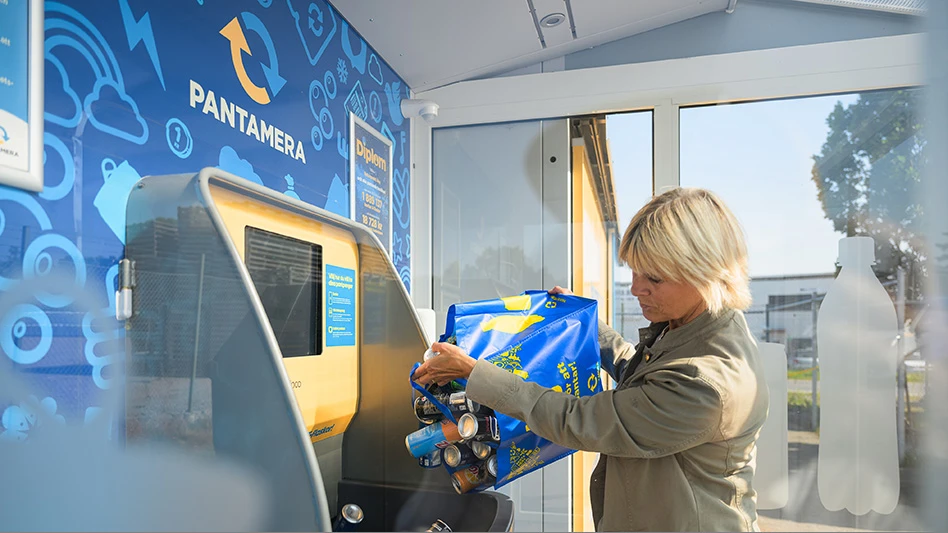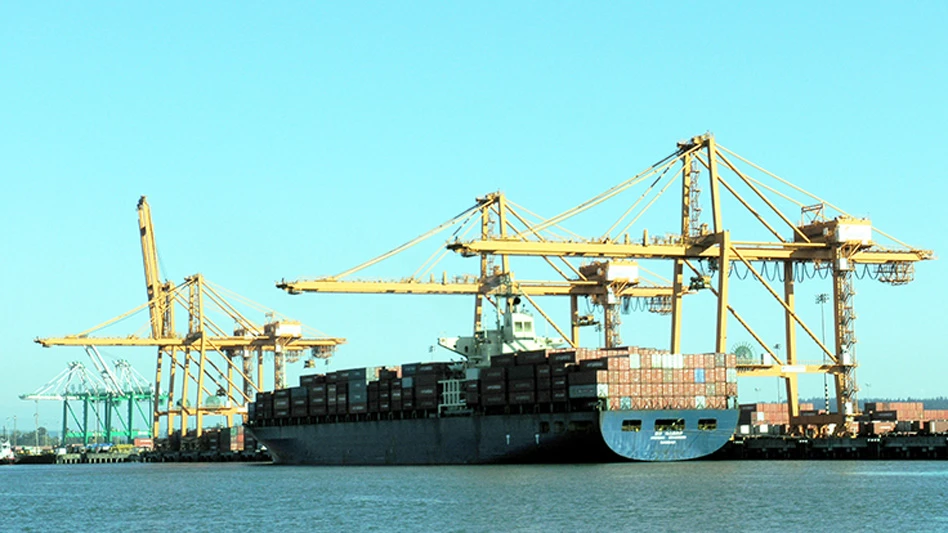Domestic demand has slowed somewhat for brown grades over the past few months as mills have built up their inventories, but demand for sorted office paper (SOP) continues to far outpace supply—pushing prices up for the fourth straight month as the gradual return to schools and offices has not generated the recovered paper seen prepandemic.
According to Fastmarkets RISI’s PPI Pulp & Paper Week April 5 “Price Watch,” SOP prices increased by as much as $10 per ton in most U.S. regions, and premiums remain above historic levels, particularly in the Midwest and Northeast.
During a session at the Institute of Scrap Recycling Industries (ISRI) 2022 Convention & Exposition in Las Vegas March 21-24, Megan Workman of Fastmarkets RISI said recovered paper demand has been U.S. mill-driven, and, because of continued supply concerns with deinking grades, mills have been testing various grades to ensure they have enough furnish to make their finished products.
"Mills are being pretty frank that they don’t want to shake up the market in a way that affects pricing; but, also at a time when supply is such a concern, these mills are going out there and acquiring tons over a longer span and warehousing them.” — Megan Workman of Fastmarkets RISI, speaking at the ISRI 2022 Convention & Exposition
“We see the interest in recovered paper demand,” Workman said. “These mills are making it known today but also going forward in their projects that they are hungry for recovered paper and will [continue to] be, so what that has done is drive up recovered paper prices very much. Every recovered paper grade is at prices today higher than they were one year ago.”
Workman said a recent trend among mills has been to start building inventory as much as six months or more before coming online rather than what typically has been about three months of buildup. “Mills are being pretty frank that they don’t want to shake up the market in a way that affects pricing; but, also at a time when supply is such a concern, these mills are going out there and acquiring tons over a longer span and warehousing them.”

Notable projects include Cascades’ conversion of a closed recycled newsprint mill in Hanover, Virginia, which is expected to come to produce 400,000 metric tons per year of recycled lightweight linerboard and corrugated medium when it comes online this year; Domtar converting an existing printed paper mill in Kingsport, Tennessee, which is expected to come online this year and to produce 600,000 tons per of recycled-content containerboard annually; and Atlantic Packaging Products, which is expected to open a facility in Whitby, Ontario, this year to produce 400,000 metric tons of corrugated medium and linerboard per year.
Pratt Industries also is planning to open a new facility in Henderson, Kentucky, to produce about 450,000 tons per year of recycled corrugated packaging. Operations are expected to being in the third quarter of next year.
ND Paper, the U.S. subsidiary of Nine Dragons Paper (Holdings) Co. Ltd., also is entering the containerboard market with the conversion of its B26 paper machine from coated mechanical papers to lightweight, high-strength recycled packaging products at its Biron, Wisconsin, mill at the end of this year. Upon completion, ND Paper says its machine will have the capacity to produce more than 500,000 short tons of packaging paper and, in total, the mill will have more than 800,000 short tons of capacity.

When it comes to the ongoing Russia-Ukraine war, Hannah Zhao of Fastmarkets RISI says neither Russia nor Ukraine is a major player in the recovered paper market, but the increasing fuel and energy costs have affected the global paper industry and have created another slowdown to go along with continued supply chain backups.
As labor shortages and transportation issues continue to affect the industry, recovered paper buyers and sellers alike have expressed excitement over the March 8 announcement that the Massachusetts Port Authority has finalized a deal with international shipping line ZIM to serve the Port of Boston on a new trade route that begins in Yantian, China, and stops in Cai Mep, Vietnam.
“This service is a welcome solution for our New England-based exports and set against the backdrop of what has been a challenging 18 months in supply chain,” International Forest Products President and CEO Dan Kraft says.

Explore the May 2022 Issue
Check out more from this issue and find your next story to read.
Latest from Recycling Today
- Nucor expects slimmer profits in early 2025
- CP Group announces new senior vice president
- APR publishes Design Guide in French
- AmSty recorded first sales of PolyRenew Styrene in 2024
- PRE says EU’s plastic recycling industry at a breaking point
- Call2Recycle Canada, Staples Professional expand partnership
- Circular Services breaks ground on north Texas MRF
- Tariff uncertainty results in choppy nonferrous scrap flows





